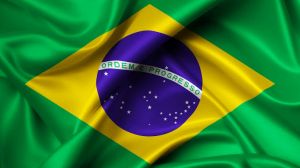Difference between revisions of "Language/Portuguese/Grammar/Gender"
< Language | Portuguese | Grammar
Jump to navigation
Jump to search
(Created page with "thumb == Nouns that are usually feminine in Portuguese == A noun is the name of a thing, such as an object, a place, or a person. Below are the main rules to identify the gender of nouns in Portuguese. === 1. Nouns ending in A === * a cama = bed * a cadeira = chair * a mesa = table Learn parts of the house in Portuguese. A couple of very common exceptions to this rule: * o dia = day * o mapa = map === 2. Nouns ending in à === * a manhã = mo...") |
m |
||
| Line 114: | Line 114: | ||
* a bola de futebol = the soccer ball | * a bola de futebol = the soccer ball | ||
* o bolo de chocolate = the chocolate cakee | * o bolo de chocolate = the chocolate cakee | ||
Revision as of 09:15, 21 August 2022
Nouns that are usually feminine in Portuguese
A noun is the name of a thing, such as an object, a place, or a person. Below are the main rules to identify the gender of nouns in Portuguese.
1. Nouns ending in A
- a cama = bed
- a cadeira = chair
- a mesa = table
Learn parts of the house in Portuguese.
A couple of very common exceptions to this rule:
- o dia = day
- o mapa = map
2. Nouns ending in Ã
- a manhã = morning
- a maçã = apple
- a hortelã = mint
There are exceptions, of course:
- o ímã = magnet
- o talismã = talisman
3. Nouns ending in AÇÃO
- a ação = action
- a nação = nation
- a confirmação = confirmation
4. Nouns ending in DADE
- a universidade = university
- a cidade = city
- a tempestade = storm
5. Nouns ending in AGEM
- a garagem = garage (not parking)
- a viagem = trip
- a massagem = massage
Nouns that are usually masculine in Portuguese
1. Nouns ending in O
- o barco = boat
- o jogo = game
- o prato = plate
Here is a common exception:
- a tribo = tribe
2. Nouns ending in a consonant
- o hotel = hotel
- o papel = paper
- o cristal = crystal
- o amor = love
- o mar = sea
- o lápis = pencil
- o país = country
There are exceptions. Some nouns ending in “or” are feminine:
- a cor = the color
- a dor = the pain
- a flor = the flower
3. Nouns ending in I or U
- o abacaxi = pineapple
- o bisturi = scalpel
- o caju = cashew
- o baú = trunk
4. Nouns ending in EMA
This might be counter intuitive because of the “a” at the end:
- o problema = problem
- o telefonema = phone call
- o cinema = cinema
Some nouns have a single form for masculine and feminine
1. Nouns ending in ANTE
- o/a estudante = student
- o/a fumante = smoker
- o/a ajudante = helper
2. Nouns ending in ENTE
- o/a cliente = client
- o/a paciente = patient
- o/a parente = relative (family member)
3. Nouns ending in ISTA
- o/a dentista =dentist
- o/a turista = tourist
- o/a massagista = masseur
For fun: a bola vs. o bolo
These two nouns are a great source of confusion for learners:
- a bola de futebol = the soccer ball
- o bolo de chocolate = the chocolate cakee
